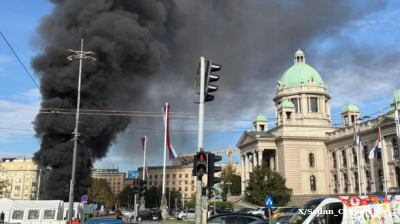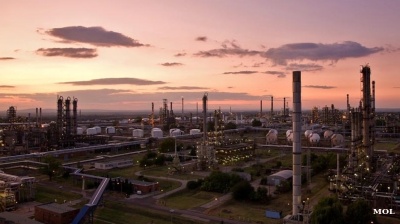Serbian Mining and Energy Minister Dubravka Djedovic Handanovic this week described Serbia's lithium resources as a "gift from God" and lamented that the country is “sitting on billions” as it fails to exploit the metal.
Djedovic Handanovic's remarks come amid renewed discussions surrounding Serbia's lithium reserves, following the cancellation of the Jadar lithium project in January 2022 due to widespread environmental protests. The project, spearheaded by international mining company Rio Tinto, aimed to establish Serbia as the biggest lithium supplier in Europe for the next decade and a half.
In the weeks since Serbia’s latest general election in December 2023, both President Aleksandar Vucic and Prime Minister Ana Brnabic have also spoken of the country’s potential to become a significant producer of lithium, which is increasingly in demand for consumer electronics, electric car batteries and green energy applications.
Speculation that the project will be revived once a new government is in place has become so intense that Djedovic Handanovic, appointed minister of mining and energy in October 2022, has been dubbed “minister for lithium”.
In an interview with state broadcaster RTS, Djedovic Handanovic spoke of the benefits exploiting Serbia’s natural resources will bring by boosting the country’s GDP, as well as salaries and pensions.
"We have an opportunity, we are rich, we are sitting on billions, literally, from various strategic mineral raw materials, and we want to use them in the most efficient way possible in the interest, first of all, of our industry, production, economic development,” the minister said.
“I have emphasised many times that we are a country that is rich in mineral raw materials, ores, this refers to lithium, borate, cobalt, nickel, gold, silver, coal … We need to exploit these raw materials in the most sustainable way possible. Because it brings us, above all, economic benefits, and it increases our gross domestic product. This increases our salaries, ultimately increases the pensions of our citizens, because of course we can fill the budget,” she added.
At the same time, she sought to address concerns over the revival of the controversial lithium project, speaking of the need for comprehensive assessments of both risks and benefits before any decisions are made.
"We need to exploit these resources in the most sustainable way possible," the minister said. “We have the right to demand the highest mining standards, which increase every year, primarily in developed countries.”
Asked whether green lithium mining is possible, Djedovic Handanovic referred to advances in technology that can make mining more ecologically friendly, and she also pointed to the importance of lithium for the green transition.
“What is certain is that Serbia has the possibility to be among the three countries in Europe that produce critical raw materials for the development of electric cars,” she said.
"We all want a green transition, we all want an energy transition, the whole world committed at the last COP in the United Arab Emirates, to increase the share of renewable energy sources by 2030, with certain goals that have already been assessed as almost unrealistic.”
Her interview followed comments by Vucic, who also indicated interest in exploring the possibility of resurrecting the lithium project.
Serbia is still interested in discussions with international mining company Rio Tinto on its stalled lithium project in the country, Vucic said on January 17 as quoted by Reuters.
Vucic indicated the topic would be considered by the new government, which has yet to be formed after the December general election, but stressed the need for a public discussion on whether the project should proceed.
The president has previously vented his frustration over the cancelled project. In November 2022, he said he “bitterly regrets” the decision to prevent the Jadar project from going ahead, thereby missing out on around €5bn.
Pointing to the high price of lithium at the time, Vucic said no country in the world “can be proud of such stupidity” as Serbians had “stuck our heads in the sand like ostriches”.
Prime Minister Ana Brnabic commented on the issue in January, when she pointed out that Rio Tinto has already purchased large areas of land in Serbia that cannot be taken away from the company.
Demand for lithium is expected to be robust in the coming years as the green transition continues, despite a recent fall in the price of the metal due to slower than expected take-up of electric vehicles in China.
Rio Tinto has continued to pursue lithium projects elsewhere in the world, such as Argentina, and its CEO Jakob Stausholm told the Financial Times on February 21 that the mining giant has not given up hope of developing the Jadar project. He did, however, acknowledge that both government approval and community acceptance are needed.
While the Jadar project is currently stalled, Serbia is entering the EV space. Stellantis, owner of the major automotive factory at Kragujevac, has started preparing to switch to electric car production. Meanwhile, US-based EV manufacturer Rivian has opened a technological centre in the Belgrade.
In battery manufacturing, Slovakia-based EV battery technology company InoBat signed a declaration of intent with the Serbian government on the construction of a major new EV battery factory in December 2022. Then in April 2023, ElevenEs announced the opening of Europe’s first LFP battery cell factory in Subotica, Serbia.
Within Serbia, however, the prospect of reviving the lithium project has sparked renewed opposition from environmental activists and concerned citizens. Critics argue that the project poses significant risks to the environment, including potential pollution of farmland and water sources in the vicinity of the proposed mining site.
The cancellation of the Jadar project has not quelled public dissent, with sporadic protests continuing across the country. Demonstrators have voiced their apprehensions regarding the environmental and social implications of large-scale mining operations, calling for a wholesale ban on any lithium mining in the country at all.
News
_1761147529.jpeg)
China accuses Washington of “bullying” over visa ban threats in Central America
China has sharply criticised the United States for its decision to impose visa restrictions on Central American officials and citizens accused of ties to the Chinese Communist Party, describing the move as evidence of American “arrogance and bias."

Serbian president calls fire, shooting outside parliament a terrorist attack
The attacker, a retired employee of the former State Security Service, opened fire on a tent settlement of pro-government supporters.

Bolivia's new leader must rebuild a shattered economy
Bolivia enters a new political and economic phase as centrist Rodrigo Paz prepares to take office on November 8, inheriting one of the country’s most acute crises since the hyperinflation of the 1980s.

Hungarian foreign minister says "many actors" worked to prevent Budapest summit
The White House has suspended plans for a meeting between US President Donald Trump and Russian President Vladimir Putin in Budapest.



